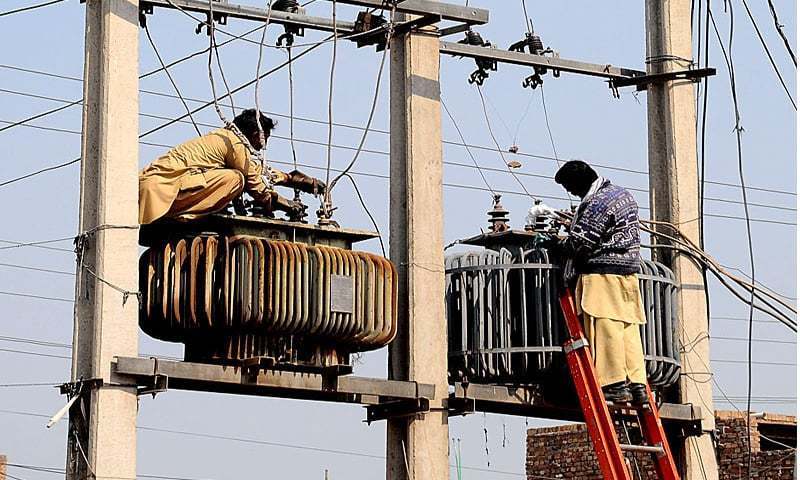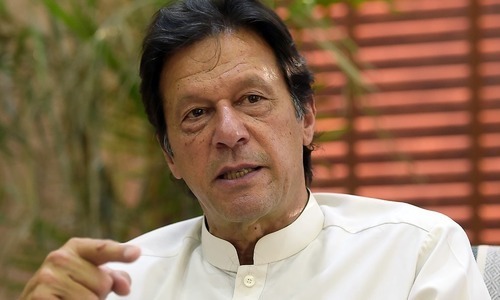ISLAMABAD: Estimating about $18bn annual loss to Pakistan economy due to inefficient power sector, the World Bank has warned the government against increasing power rates as a tool to address fiscal challenges in the sector.
In a report “In the Dark: How Much Do Power Sector Distortions Cost South Asia” launched here on Wednesday, the World Bank also suggested some solutions to address the power sector problems by asking authorities to prioritise gas allocation to efficient power plants and launch tariff mechanism that encourages performance.
Pakistan’s power sector suffers from inefficiencies that cost the economy $18bn or 6.5 per cent of GDP in the fiscal year 2015, said a new World Bank report. Asked about the use of 2015 data about economic losses, a World Bank official said the situation had not changed much since then.
World Bank asks authorities to prioritise gas allocation to efficient power plants and launch tariff mechanism
Costs are far greater than previous estimates based on fiscal costs alone and reforms could save Pakistan’s economy $8.4bn in business losses and could increase total household incomes by at least $4.5bn a year, said Senior Economist in the World Bank Fan Zhang who launched the report. “Reforms must go beyond liberalising energy prices to address several aspects of the power sector distortions,” the report added.
The report argues that reforms that focus solely on liberalising energy prices would lead to an excessively high cost of electricity because of inefficiencies in the system, negatively impacting the poor and vulnerable. This is in contrast to policy recommendations by all the three leading lending agencies — the IMF, the World Bank and the Asian Development Bank — for increasing tariffs to address energy sector’s fiscal problems.
On the long-term basis, the increase in tariffs alone would not address the problems but in short term it could solve the fiscal problems, said Rikard Liden, the lead energy specialist of the World Bank. Mr Liden said that it was important to focus on revenue side but it was equally important to look at the generation side to address the sector’s problems.
The report said Pakistan had made great strides in expanding electricity access and capacity as 91 million more people were receiving electricity for the first time from 1990 to 2010. However, according to the report, up to 50m people still do not have access to grid electricity and frequent loadshedding damaged businesses and the health and living standards of consumers. Almost a fifth of electricity generated is lost through poor infrastructure, faulty metering and theft. Loadshedding is caused by high cost, losses and subsidies which compromise investments and the ability to procure fuel. A lack of grid electricity also impacts health, as it leads to greater use of kerosene lamps, causing indoor air pollution linked to respiratory infections and tuberculosis risks.
The report stated that for the benefit of consumers, energy sector reforms should focus on rationalising consumer prices for electricity and gas to reflect supply costs; and social assistance to help vulnerable populations cope with increased energy prices. Increased access to reliable power must be made a priority, it added.
Fan Zhang said although the supply side problems had reduced for the past three years, the market distortions still remained underpinning high losses even this day. In Pakistan the impact of the lack of reliable access to electricity on households and firms was the largest source, costing roughly $12.9bn a year, she added.
Some participants did not agree to the World Bank claim that demand for electricity will increase 64pc from 2018-25 and referred to a recent study of the National Electric Power Regulatory Authority that projected 34pc growth in demand during that period.
“Pakistan can boost economic growth and job creation by overcoming inefficiencies in its power sector,” said Illango Patchamuthu, World Bank Country Director for Pakistan. “Reforms that address these distortions can make better use of existing facilities. These need to focus on eliminating waste, promoting the shift towards cleaner energy and attracting private investments,” he added.
“Power sector reform should be a top priority, as few other reforms could yield economic gains of a similar magnitude so quickly, based on findings from this report,” says Fan Zhang. In India and Pakistan, hefty losses of electricity in distribution, along with poor recovery of overdue electricity bills, gave rise to alarming levels of debt in the sector and prompted repeated government bailouts, the report said.
Published in Dawn, December 13th, 2018

















































